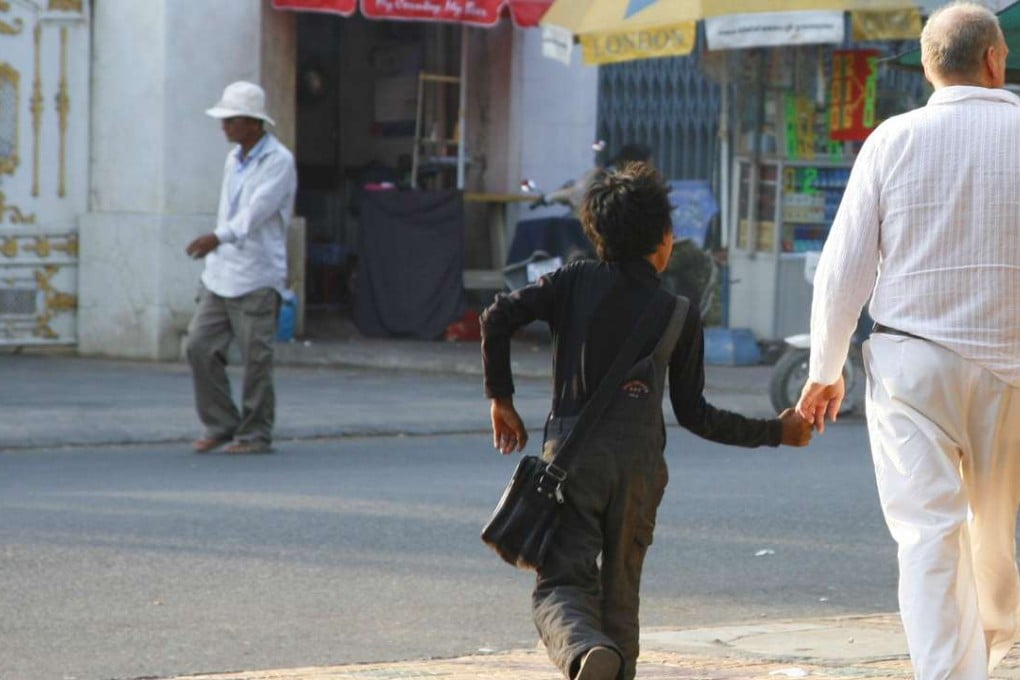With the paedophile-hunters on the streets of Phnom Penh
For 13 years, an NGO’s investigators have tracked Western, and Chinese, men who sexually exploit Cambodian children, turning dossiers over to authorities. Now it aims to step back and help police gather evidence against suspects

IT’S MID-AFTERNOON on a Saturday and the streets of Phnom Penh resemble a failed experiment in automotive anarchy as we rumble through another unmarked intersection amid clouds of dust and a cacophony of horns and screeching brakes.
Our driver remains impassive as he manoeuvres us between a giant pothole and a beaten-up hatchback that has inexplicably stopped in the middle of the road, taking a left onto a quieter street lined with modest bars and restaurants.
“A people trafficker who brings in Vietnamese girls is often at that café over there,” says Tim Huon, investigation manager at anti-paedophile NGO Action Pour Les Enfants (APLE), as we slow to a crawl opposite a small eatery that is almost indistinguishable from the many others on the street. “We know what he’s doing but we don’t have enough evidence,” says Huon with a shrug.
Although the café looks empty, we linger for a moment before rejoining the barely organised chaos that is the Cambodian capital’s traffic. We have only a few hours and there are many other locations Huon wants to show me. Road signs might be in short supply here but sexual exploitation hot spots are not.
Huon has been working at APLE for more than a decade, and his job is to investigate suspected child sex offenders with the aim of gathering enough evidence to make the police take action. He often accompanies the police on “raid and rescue” missions, he says, and has been present at a number of high-profile arrests, including that of former British government adviser Michael Leach, in 2010.
As we drive, Huon shows me a ring binder that contains notes and images relating to the nvestigations he is working on. The first case is that of a British teacher in his early 30s who is suspected of grooming girls as young as five at a school. The pages are filled with smiling portraits of the angelic-looking schoolgirls the man is believed to be targeting, as well as images taken with a secret camera showing the suspect holding a girl aged five or six in a swimming pool in ways that appear inappropriate. The evidence acquired thus far, Huon says, is not sufficient to convince the police to act, while the school in question has been equally resistant. Indeed, APLE says when it raised its concerns with the principal, he used his government connections to try to force the investigators to back off.